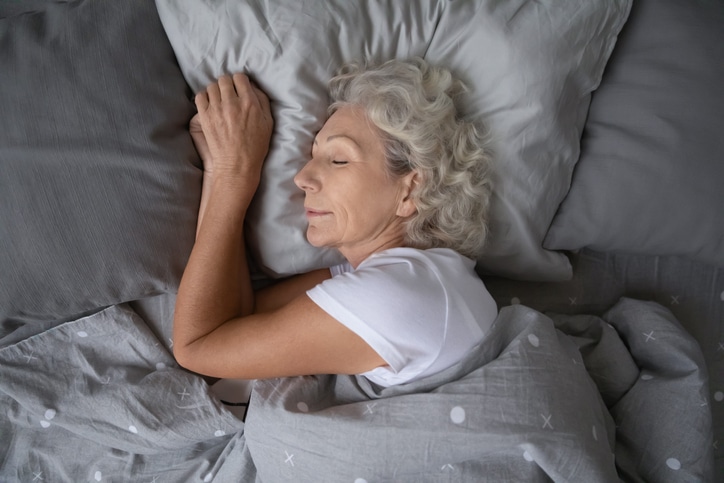Let’s face it, there’s nothing quite like a great night’s sleep.
I’m stating the obvious here, but getting quality sleep helps you wake up feeling refreshed, alert, focused, and ready to take on the day.
And if that’s not incentive enough to make sleep a priority in your life, countless scientific studies have linked sleep to better health outcomes, lower risk of deadly diseases, and an overall improvement in your quality of life.
But unfortunately, getting good shut-eye is something that eludes millions of Americans… perhaps even yourself!
In fact, a new study found that only 30% of adults feel ‘refreshed’ when waking up in the morning.
I don’t know about you, but being part of the 70% of folks who say their sleep quality STINKS doesn’t sound like much fun.
But it doesn’t mean you need to live your life waking up like a zombie each morning.
That’s because new research has identified the BEST time for you to go to bed…
It’s a common trait amongst some of the best ‘sleepers’ out there…
And if you start giving it a try TONIGHT… you may finally start getting the sleep you deserve!
The Ideal Time to Go to Sleep
According to a national survey conducted by OnePoll, the average person gets to bed around 10 p.m.
But those who claim they get excellent sleep get to sleep at 9:39 p.m.
That’s an ultra-specific time to go to sleep, but that time was determined to be that ‘sweet spot.’
The poll found that even for the best sleepers, quality sleep environments (i.e., minimal light, comfy blankets, etc.) and a consistent routine leading up to going to sleep (i.e., putting away screens or reading a book) were a key component to getting good sleep.
In other words, simply laying down at 9:39 p.m. isn’t going to suddenly making you sleep deeper – or better.
But, taking steps to get your body ready for shut-eye will dramatically help improve the quality of your sleep – which will only help improve your overall health.
Studies have found that getting off ‘screens,’ sleeping in a room with minimal light (or with blackout shades), and investing in quality pillows and blankets can all help your body wind down and get into that sleep zone.
You can also try a melatonin supplement. Melatonin is a hormone your body produces naturally, signaling your brain it’s time to sleep.
Melatonin supplements have become a popular sleeping aid, particularly in instances where the melatonin cycle is disrupted.
They help reduce the time people need to fall asleep and INCREASE the total amount of quality sleep time. The best time to take melatonin is about one hour before your bedtime.
If you do decide to take melatonin, only take the recommended dosage listed on the label. And if you have a history of sleep troubles, be sure to talk to your doctor first.

